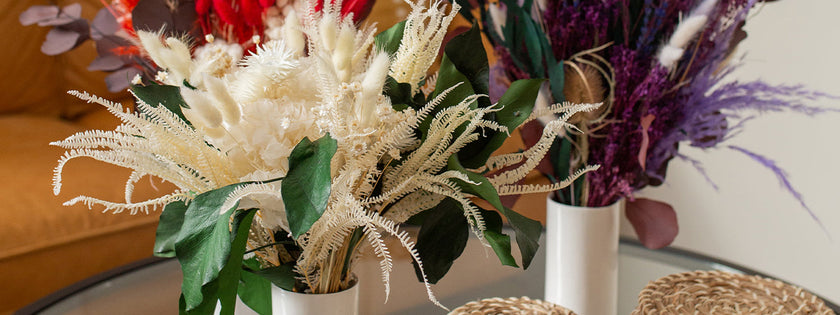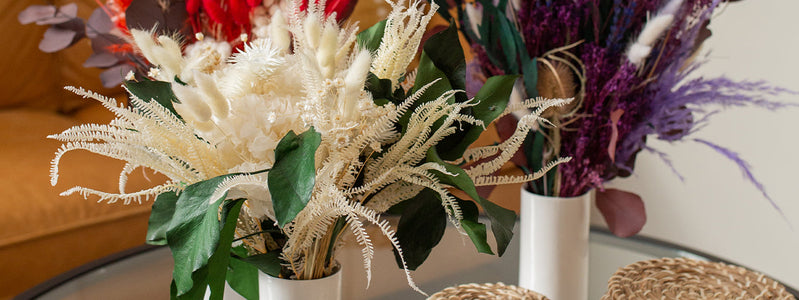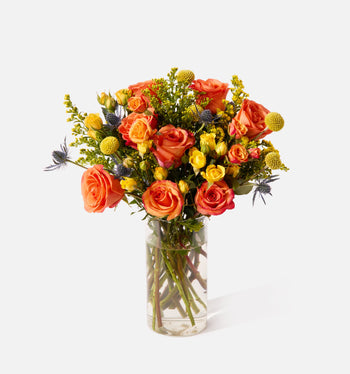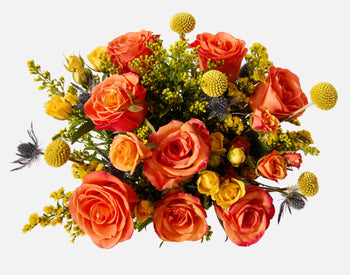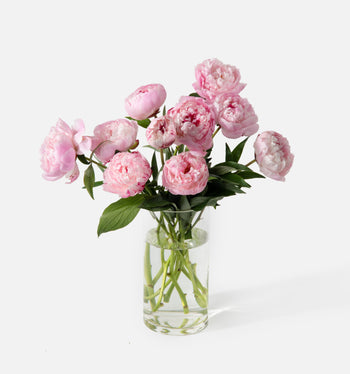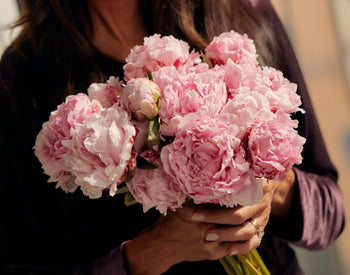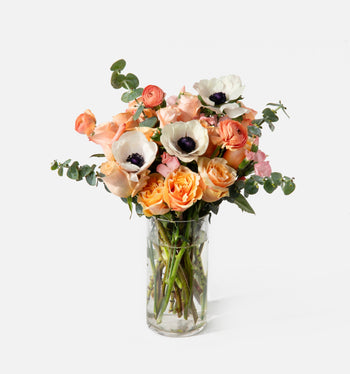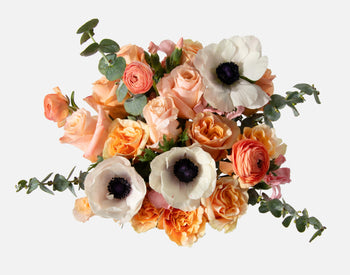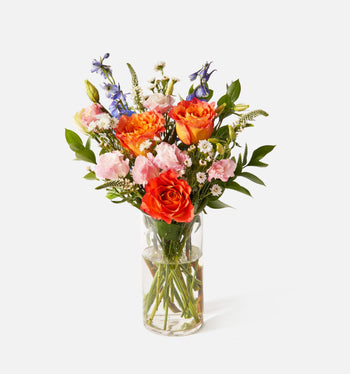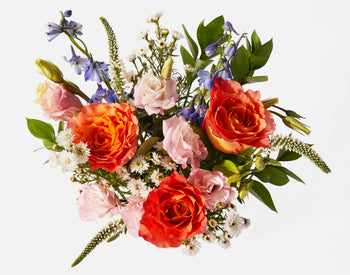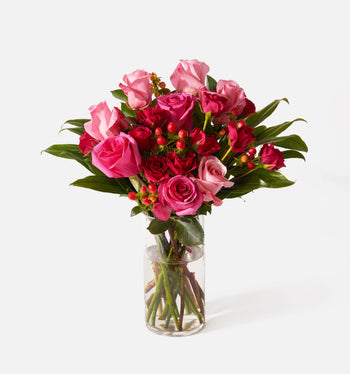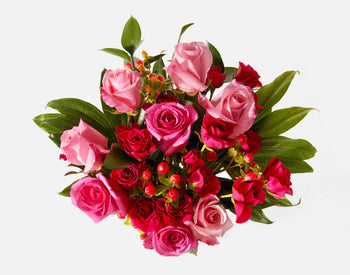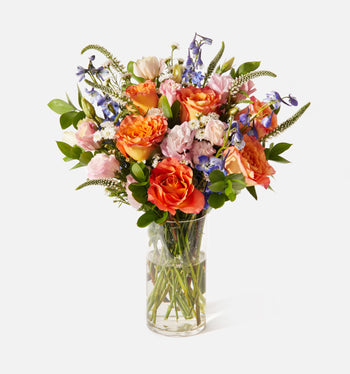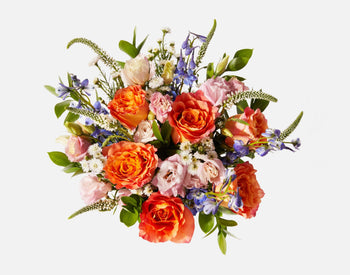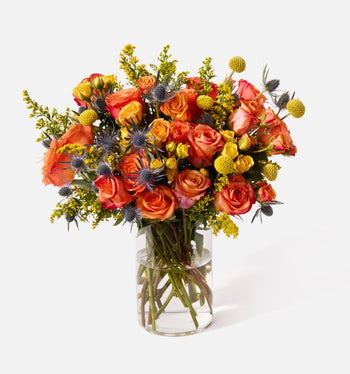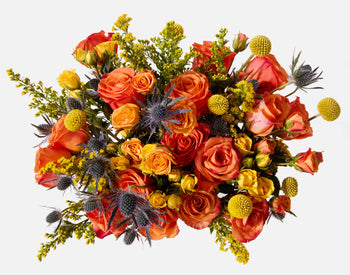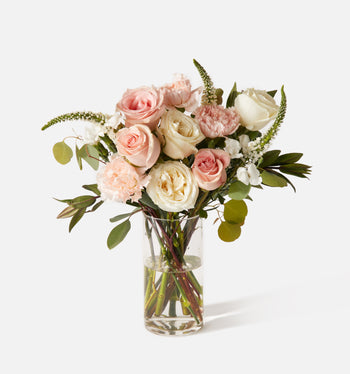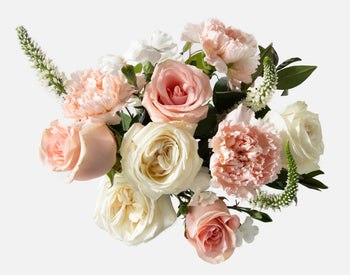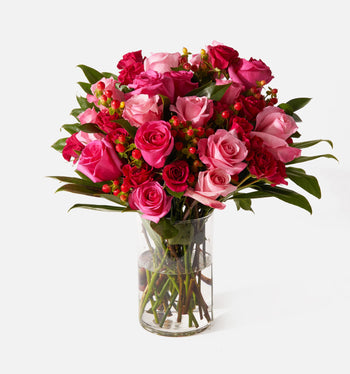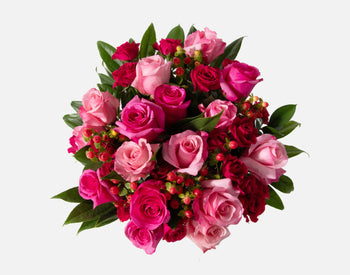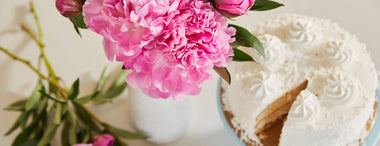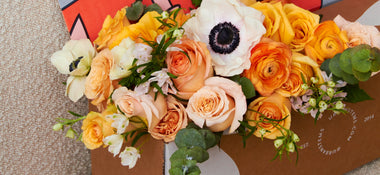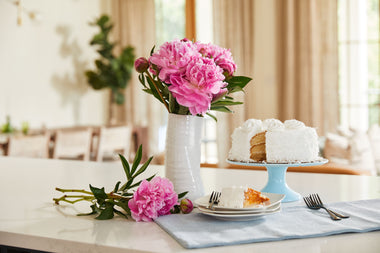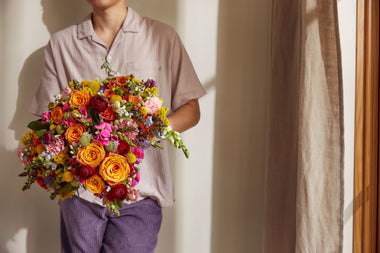
Not only are orchids gorgeous to look at and low-maintenance, but they can also last for months since they come in potted form. Orchids are known to be hypoallergenic so they won’t aggravate allergies in your home or office.
Orchids have sticky pollen that has to be intentionally disturbed to get into the air. If you have a pollen allergy, it will be difficult to get a strong reaction from this flower alone. Orchids are also easy to care for in potted form when you follow basic care instructions.
Our orchid collection is a continually evolving selection of potted orchid gifts. Browse our curated collection to find orchids in various colors to suit countless occasions.

Roses are some of the most well-known flowers in the world, so the fact that they’re hypoallergenic is a major plus. These universal flowers come in many colors for a variety of occasions, from romance to offering condolences. Roses are low-pollen flowers that look beautiful in single-stem bouquets or in arrangements with other hypoallergenic flowers like carnations and hydrangeas.
To get just roses, order roses by the stem. This ensures that you get an arrangement that is purely hypoallergenic.

This multi-petaled flower with an iconic cupped shape is one of the most popular flowers in the world. Available in stunning colors like red, pink, and cream, peonies are jaw-dropping additions to any bouquet — and they have thick, sticky pollen that doesn’t fill the room with allergens.
The iris is a fragrant and eye-catching springtime flower that is friendly toward people with allergies. Its pollen is particularly heavy and stays locked deep in the flower’s long petals. The iris can be found in a stunning array of colors like blue, white, yellow, and bi-color options, which keeps your hypoallergenic arrangements interesting.

The hydrangea is a deeply-loved flower for its color variety and multiple tiny blooms formed into a conical shape. They add depth to a floral arrangement and a texture variety that takes a bouquet to a higher level. And, wouldn't you know — this flower has pollen that is sticky enough to stay on the flower and not end up in your nose!
Tulips

Tulips are a classic flower that famously blooms during spring that adds a touch of seasonal style to any arrangement. Known for their clean, lively petals and low pollen production, tulips are a wonderful choice for those who suffer from allergies. Their cup-like petal structure keeps pollen securely tucked away, which minimizes the chance of allergens entering the air.
With many hues ranging from pastels to bold colors, tulips are a versatile choice for various occasions, from spring to romantic celebrations. As a bonus, tulips are also unscented which make them ideal for individuals who are sensitive to strong scents.
Snapdragons

Snapdragons are tall, colorful flowers with a unique dragon-shaped stem structure that naturally traps pollen inside. This floral feature seriously reduces the risk of airborne allergens, making them a wonderful choice for anyone with hay fever or pollen sensitivities. In addition to their hypoallergenic upside, snapdragons provide a playful and whimsical touch to your arrangements with their vertical growth and color options. Snapdragons are also relatively long-lasting, ensuring your arrangements stay fresh for days without irritating your allergies.
Begonias

Begonias are a true gem for the allergy-conscious flower lovers. These lush flowers produce minimal pollen and are primarily grown for their vivid, showy flowers and striking foliage. Because begonias are typically pollinated by insects rather than the natural air, their pollen stays contained, keeping allergens out of the air. Perfect for indoor pots, garden borders, or shaded patios, begonias are a versatile option that adds a pop of color to any setting. Their low-maintenance nature and allergy-friendly attributes make them a thoughtful option for homes and offices.
Flowers to Avoid If You Have Allergies

While there are many flowers are safe for allergy sufferers, some are best avoided to avoid the sneezing and itchy eyes. Some high-pollen flowers like daisies, sunflowers, chrysanthemums, and lilies with exposed stamens can trigger hay fever symptoms. It is important to be cautious of wildflowers or heavily scented stems, as they often carry allergens that can irritate sensitive noses.
How to Choose Hypoallergenic Flowers

When selecting the best hypoallergenic flowers for you, search for stems with sticky or heavy pollen that isn’t easily scattered by a breeze or to the touch. Instead, go for for the best flowers for allergies which are closed forms, because they typically have lower allergenic properties. If you’re not sure, ask your florist to check if they can craft an allergy-friendly bouquet!
Whether you're brightening up your home, decorating an office or surprising a loved one who suffers from allergies, hypoallergenic flowers are a very considerate choice. Explore our low pollen flowers and collection of plants to find the perfect option to enjoy the beauty of flowers or plants without the sneeze factor.
